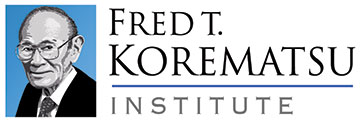Karen Korematsu to Receive Honorary Degree
at Haverford College Commencement
On May 14, the College will award an honorary degree to the civil rights advocate at the ceremony celebrating the Class of 2022.
Each year Haverford College awards honorary degrees to people who have distinguished themselves in letters, the sciences, or the arts. Many recipients are noted for their contributions to the overall betterment of humankind and/or Haverford College. At the 184th Commencement ceremony, which will be held Saturday, May 14, the College will award an honorary degree to civil rights advocate Dr. Karen Korematsu.
Dr. Korematsu is the founder and executive director of the Fred T. Korematsu Institute, named for her late father, a civil rights icon who took his fight against WWII-era Japanese American incarceration all the way to the Supreme Court. Since her father’s 2005 death, Dr. Korematsu has carried on his legacy as a public speaker, educator, and education and civil rights advocate. She founded the Institute in 2009 to advance racial equity, social justice, and human rights for all, expanding from K-12 civic education to promoting public civic engagement and participation. The national education and advocacy organization has changed the way Japanese American incarceration has been taught in schools.
Dr. Korematsu’s work extends to advocating civil liberties and social justice for all communities and addresses current issues that draw upon lessons of the past. As an Ambassador to California Education, she advised that state’s Department of Education on its Ethnic Studies Model Curriculum, designed to provide educators with the resources and guidance needed to integrate the histories and contributions of historically marginalized communities. She has given talks at schools and universities across the country, including presenting to Teachers College, Columbia University and the National and State Councils for the Social Studies. She has signed on to amicus briefs in several cases opposing violations of constitutional rights that arose after 9/11, including Odah v. United States, Turkman v. Ashcroft, Hedges v. Obama, Hassan v. City of New York and, most recently, Hawaii v. Trump. And in 2015 she was the first non-lawyer to be inducted as a member of the National Asian Pacific American Bar Association (NAPABA). She serves on the board of directors of Asian Americans Advancing Justice-AAJC and NAPABA Law Foundation. She has been widely interviewed on issues of civil rights and education, and her op/eds have appeared in The New York Times and Washington Post. She is the recipient of many awards, including the ACLU-Chief Justice Earl Warren Civil Liberties Award, the Muslim Advocates-Voice of Freedom Award, the Community Leadership Award from the Asian Pacific American Institute for Congressional Studies, and an honorary Doctorate of Humane Letters from St. Michael’s College in Burlington, Vermont.
